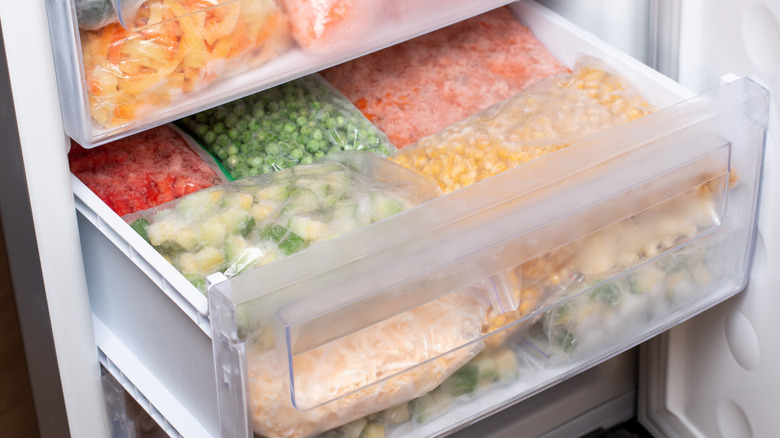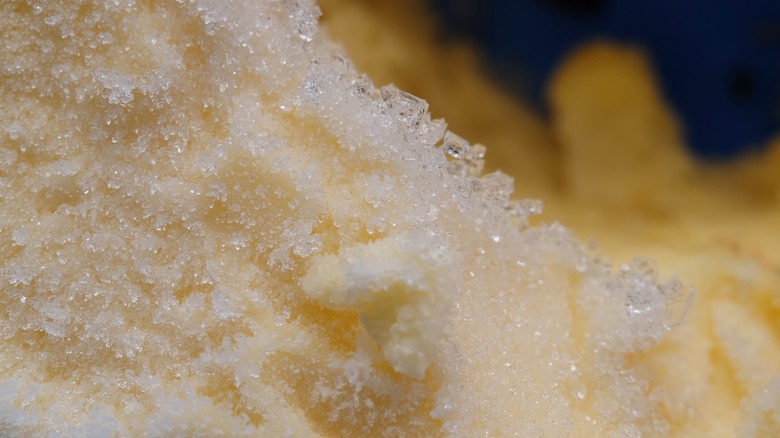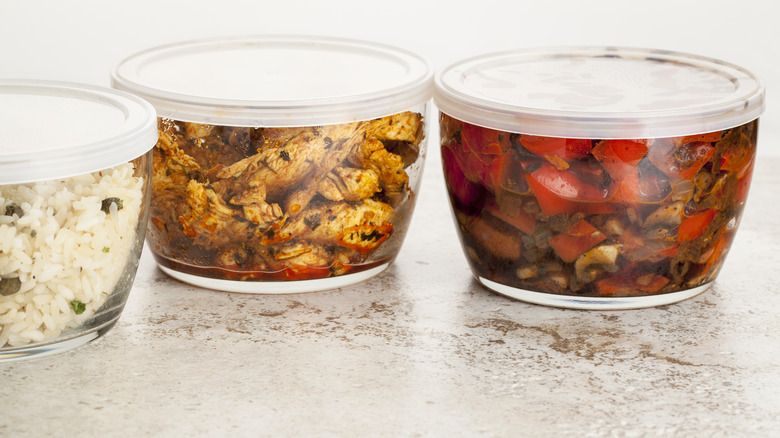The Smartest Storage Fix To Save Your Food From Freezer Burn
Everyone has been there. You open your freezer to grab some meat to thaw out — or maybe to defrost some soup you squirreled away for a cold winter day — only to find that your food has become freezer-burned. From casseroles you can make ahead to ice cream that you didn't properly cover, freezer burn can affect many dishes you have stored away.
Many people know to keep food sealed in airtight containers to help prevent freezer burn, but the cold air isn't the only problem. To prevent freezer burn, it's also important to keep moisture from escaping out of your packaging. That's because freezer burn is the process by which your food becomes dehydrated after it's exposed to the cold, dry air of the freezer. Before you stock your freezer up with some meals for the future, make sure you're doing everything you can to prevent freezer burn and avoid other common frozen food mistakes.
The science behind freezer burn
When air gets colder, it can't hold as much moisture as it can when it's warmer. This is why cold winter air is so dry. When your moisture-filled food hits the freezer, there's a tendency for the moisture to get sucked out of the food. According to the Washington Post, this happens via a process called sublimation, where the liquid goes right from a frozen state to a vapor gas state. This often appears as ice crystals on freezer-burned food. It can also cause discoloration, a shriveled look to fruits and vegetables, and a leathery look to meat.
If you can prevent the moisture from getting sucked out of your food and its packaging, you can pretty reliably prevent freezer burn. One way to do this is by keeping cold freezer air from coming into contact with your food. The other way is to prevent moisture from leaving your storage container or food packaging. If your food does get freezer-burned, it's still safe to eat; it just might not taste as good, according to the FDA. Just make sure you keep your freezer at 0 degrees Fahrenheit. You might notice that your freezer-burned food is dry, tough, and bland. It can also change the texture of your food. If you still want to consume the food, you can try cutting off the freezer-burned parts.
Storage solutions to prevent freezer burn
To prevent freezer burn, choose storage containers that don't allow moisture to escape. One of the best freezer storage options is glass containers. Unless your container cracks, you won't have any small tears or holes that could let air in and moisture out. Of course, because glass can be dangerous when it breaks, make sure you have your freezer nicely organized to prevent your containers from falling.
Another popular option is freezer bags that zip shut. If you choose this option, be sure to use bags that are designed specifically for the freezer, because they're thicker and this helps prevent water from getting out. When you put your food in the bags, get as much air out as you can before sealing them, and make sure the bag is securely sealed all the way to the edge to lock the moisture in. Another viable bag option is vacuum seal bags, which do an excellent job at both sucking out air and preventing moisture loss. Armed with new freezer storage solutions, hopefully, you won't face the dilemma of what to do with freezer-burned food in the future.


